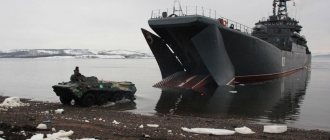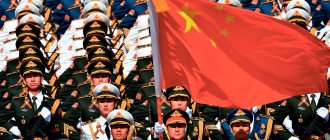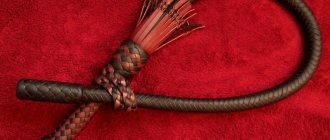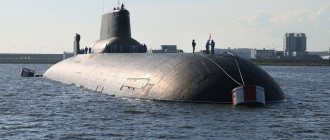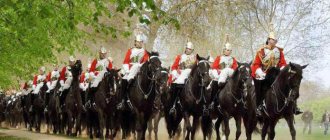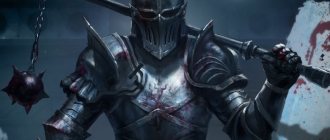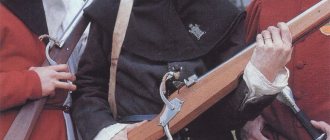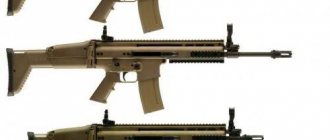These people prefer not to put their lives on public display. The GRU special forces do not even have their own designation or name. And the most interesting thing is their secrecy in their work. After all, special forces operate in all parts of our planet, and their representatives can be dressed in absolutely any clothing, including the uniform of the British army or other countries.
Spetsnaz is an elite unit of the military forces of the Russian Federation. Many films are made about special forces soldiers, books and articles are written about their hard work for the glory of their homeland. True, the cinematic presentation is most often either embellished or undertold. Only the best of the best are worthy of service in the GRU, which is why very strict selection rules have been created for them. And the most banal training day can shock an ordinary person who has nothing to do with serving in the country’s law enforcement agencies.
On TV or on the Internet they will never talk or write about real special forces operations; most often the noise is made because of failure, but, fortunately for everyone, this practically never happens.
What is GRU
Each country has its own military structures, and it just so happens that foreign intelligence plays one of the most important roles in protecting its state. In the Russian Federation, such functions are performed by the GU GSH VS, which means the Main Directorate of the General Staff of the Armed Forces. However, the predecessor of this name was the Main Intelligence Directorate. This is exactly what the GRU transcript will sound like.
Initially, it conducted its reconnaissance and sabotage activities in the interests of the Soviet Union, and was also the central organ of military intelligence.
Double agent, dancer and courtesan
In the 1910s, young Margaretha Gertrude Zelle from the Netherlands began her career as a dancer in Paris under the pseudonym Mata Hari. She moved in high society in France and entered into relationships with officers and politicians. In view of this, she was recruited by German intelligence, and after some time - by French counterintelligence: when Mata Hari agreed to become a double agent, the French exposed her.
Loud spy scandals in the history of intelligence services
Intelligence under the Tsar
Even before the overthrow of the monarchy, under Tsarist Russia, sabotage and reconnaissance groups operated. These were specially trained military units. If we recall the reign of Ivan the Fourth, then in the 16th century he was the founder of the guard service, which consisted of Cossack detachments. All warriors were checked for physical health and excellent skills in using weapons (bladed and firearms). Since in those days the Tatars constantly raided Moscow, the main purpose of these detachments was to monitor the surrounding territories to prevent an attack.
At a later time, Alexey Mikhailovich revealed the Secret Order to the country. The order's intelligence officers collected and structured all messages and information reports about possible enemy attacks and the activities of countries in the neighborhood.
In 1764, Suvorov and Kutuzov put forward the idea of creating special detachments of rangers. Their operations were carried out in parallel with the main royal army. The rangers staged raids and ambushes, and also attacked the enemy in the mountains, forests and other difficult terrain. These were the so-called beginnings of special forces. And in 1810, Barclay de Tolly established the Secret Affairs Expedition.
"Cambridge Five"
In 1979, former Cambridge University student Anthony Blunt found himself at the center of one of the UK's biggest spy scandals. He admitted that he was part of a group of five agents who had access to the highest government circles and supplied the USSR with information of strategic importance. Four agents were exposed; The identity of the fifth has not yet been established.
Loud spy scandals in the history of intelligence services
History of the GRU
When the workers' and peasants' Red Army was formed in the USSR, after the famous revolution, the need arose for the formation of a special unit that was supposed to take on intelligence functions. On this occasion, in 1918, the Bolsheviks came to the creation of the Field Headquarters of the Revolutionary Council. One of the components of this headquarters was a special department for registration, collection and processing of information obtained by intelligence officers. As a result, counterintelligence activities were completely transferred to the shoulders of the Field Headquarters.
In 1921, the Intelligence Department of the Red Army Headquarters was formed; it was engaged in reconnaissance not only in difficult and wartime times, but also in peacetime they were one hundred percent covered in reconnaissance work. During Soviet times, human intelligence was carried out. In countries neighboring the Union, special partisan detachments were created that carried out subversive operations.
In 1934, intelligence management was transferred to the People's Commissar of Defense. There were successful missions during the Spanish War, but even such a high-ranking structure as the country's intelligence service was affected by the tragedy of repression. And by the beginning of World War II, half of the intelligence service was shot. Since 1942, we have known the Razvedupr under the familiar name GRU (Main Intelligence Directorate).
Shoigu defended the independence of the GRU from the FSB
Lieutenant General Igor Korobov became the new head of the Main Intelligence Directorate of the Russian Ministry of Defense. According to our information, this appointment was made after an intense behind-the-scenes struggle between the “Kremlin towers” and was the result of the victory of the “army” clan led by Sergei Shoigu over the Federal Security Service and the influence group of the head of Rostec, Sergei Chemezov.
In most cases, one can only guess what is going on in the GRU system. Its structure, numerical composition and even the biographies of its superiors are a state secret. In terms of the degree of secrecy, this structure is at least not inferior to the FSB and the Foreign Intelligence Service, with which military intelligence officers have been competing with each other since Soviet times. And it's not just hardware competition. It is believed that the GRU and the SVR-FSB represent two alternative geopolitical visions of the current situation in the world. They say that the GRU are “Eurasians” who offer Russia an alliance with the East and do not care too much about the “democratic image” of our country. And the SVR and the FSB are, they say, “Atlantists” who want to be friends with the Western elite and therefore consider it necessary to maintain a “democratic flair.” Formal, of course, as long as the Western rules of the game are followed. Of course, this is a simplified view of things. But there is a fair amount of truth in it.
Death or doom? In the Moscow region or Lebanon?
The death of the former head of the GRU was as mysterious and gave rise to many versions as the entire activity of this structure. No, of course, according to the official version, 58-year-old Colonel General Igor Sergun, who headed the GRU since 2011, died quite routinely - in his Moscow region, from a heart attack. But who among us believes the official versions? There is no particular doubt that death was due to a heart attack. The question is raised by her circumstances.
Immediately after the news of Sergun’s death, the American “intelligence and analytical” company Stratfor stated that, according to its information, death occurred not on January 3, but on January 1. And not in the Moscow region, but in Lebanon. If this is so, then it is strange why it was necessary to hide the circumstances of time and place. Lebanon is the base for all the world's intelligence services in the Middle East. It is quite logical that Sergun was located exactly where key events on the planet are now unfolding. The last time he appeared was on November 24 at the Sochi presidential residence “Bocharov Ruchey” during negotiations with King Abdullah II of Jordan.
The army clan is now on horseback. The fight against corruption in the Ministry of Defense, the reinstatement of popular generals, and the announcement of further expansion of military potential only help Shoigu.
The disclaimer on the Vesti.Ru portal was also strange. The headline of the news about Sergun’s passing was as follows: “Shoigu condolences over the death of GRU chief Igor Sergun.” Do you understand? Not “death” or “death,” but “death.” Do you see the difference? I know very well how state media like Vesti polishes off headlines. To suggest journalistic license in this is simply ridiculous.
FSB together with Rostec - against the GRU
However, let’s leave the conspiracy theories and move on to the main thing – the political version of the changes taking place. The new head of the GRU was Lieutenant General Igor Korobov, who previously held the position of first deputy head of the main department - head of strategic intelligence. It seems that everything is too obvious - who else will fill the vacant post if not the first deputy? But then why did the Russian leadership hesitate for more than a month without making a decision? And this is when work is in full swing in Syria, where it is impossible to do without the GRU. If in such a situation the authorities left the GRU without a chief, then it was impossible to do otherwise. This means that there was an intense struggle between the special services over whose protege would lead military intelligence.
On this topic
1406
HBO won't make Game of Thrones prequel
As the media has learned, the American television channel HBO has refused to film a prequel to the popular television series “Game of Thrones,” the final season of which was released this year.
Since the mid-90s, the FSB has captured more and more heights. Remember the story with “Three Whales”? This was a successful interception of the Russian Federal Customs Service - a titbit for which the FSB and the Ministry of Economic Development and Trade were fighting. Then came the actual taking under control and neutralization of the SVR, whose employees were accustomed to consider themselves the “white bone” of the intelligence services in comparison with the “stompers” from the FSB. And now, apparently, the decisive time has come to compete with the GRU, placing your own creature at its head. Moreover, this time the FSB had another strong supporter on its side - Sergei Chemezov.
Chemezov is an old friend of Vladimir Putin, who was part of the “inner circle” before the 2008 crisis. As head of Rostec, he competes fiercely for government contracts in the defense industry with the Ministry of Defense, which oversees the GRU. Shoigu has already tried to eliminate a dangerous rival by making proposals to restructure Rostec in order to demonopolize the industry, but achieved only partial success. The state corporation survived, although it lost foreign markets.
In the fight against Shoigu, Chemezov probably counted on the political authority of Sergei Ivanov, the head of the presidential administration. According to rumors, he and Shoigu are two generals, two main contenders for the proud title of “successor”. On the side of Ivanov, like Chemezov, is the trump card of personal friendship with the head of state. Ivanov met Putin in the Leningrad KGB back in 1976. Both passed the interview and went to Europe: Putin to the GDR, and Ivanov to Sweden. When Putin became head of the FSB, he made Ivanov his deputy. In 2001–2007, he was the first “non-military” defense minister in Russian history, then first deputy prime minister, and, finally, the most likely presidential candidate in 2008.
Then Ivanov could not become one. Putin unexpectedly preferred Dmitry Medvedev. Now, as they hear from behind the battlements, he wants to take revenge - on the second try. In this game, he is counting on the support of FSB Director Alexander Bortnikov and the military-industrial lobby led by Deputy Prime Minister Dmitry Rogozin and Chemezov. The battle for the GRU was supposed to be an important step towards achieving this goal. If an outsider had become the new head of the GRU, Ivanov’s position would have become even stronger.
The fight for the title of successor
As we already know, this was not possible. After more than a month of behind-the-scenes fighting, a Ministry of Defense creature was appointed head of the GRU. This means that in the battle for the title of successor, the two rivals are still on a par, nose to nose.
The different strategies of Shoigu and Ivanov were also revealed by the war in eastern Ukraine. The latter advocates the implementation of the Minsk agreements and strengthening relations with Ukraine. For Russia's exit from the regime of bilateral sanctions with the West. The Minister of Defense, on the contrary, advocates confrontation with NATO and a full-scale war with Ukraine. At talks in Beijing with Chinese Prime Minister Li Keqiang, Shoigu “expressed concern about American efforts to strengthen military-political influence in the Asia-Pacific region.”
The army clan is now on horseback. The fight against corruption in the Ministry of Defense, the reinstatement of popular generals, and the announcement of further expansion of military potential only help Shoigu. His popularity rating is second in Russia after Putin. We'll see what happens next...
MEANWHILE
A few days before the death of Igor Sergun, the deputy chief of the General Staff of the Airborne Forces, General Alexander Shushukin, who was allegedly involved in the operation to annex Crimea in 2014, unexpectedly died (and also due to cardiac arrest. - Ed.). Sergun also knew a lot about Russian actions in Crimea and Donbass, taking direct part in the planning and implementation of these events. Therefore, it was included in the sanctions lists of the United States, the European Union, Canada and Ukraine. Just like Shushukin. However, a trend?
The first special forces units in the USSR
In 1950, a secret decree was issued on the formation of special groups whose task was to conduct sabotage operations on the side of the enemy. All military districts of the Union were equipped with such units; in total they created forty-six companies, each consisting of one hundred and twenty soldiers. And it was they who were the basis for the creation of special forces in 1962. After 6 years, a special regiment was formed to train employees.
The initial purpose of creating such units was to carry out sabotage actions in the war with NATO and the confrontation with the United States in the Cold War. The pattern of these actions was the collection and delivery of all information from the enemy rear to the GRU headquarters, sowing panic in populated areas where civilians live, undermining important infrastructure, and large-scale actions to destroy enemy headquarters. Weapons of mass destruction were strategically important; special forces destroyed missile silos, airfields used by enemy long-range aviation, launchers, and bases with submarines.
The Afghan war was fought with the active participation of GRU agents, and special forces also played an important role during the unrest in the North Caucasus. Moreover, Tajikistan and Georgia also did not go unnoticed by elite units during their military operations (the last war with Georgia in 2008). At the moment, the Syrian war is taking place with the participation of Russian special forces.
Now the GRU command gives orders to act not only by force, but also by information.
The renaming from the Soviet name took place in 2010. Everyone who is in the service of the GRU (decoding - Main Intelligence Directorate) celebrates their holiday dedicated to military intelligence officers on November 5th.
From intelligence to the podium
In 2010, the daughter of a Russian diplomat, Anna Chapman, was arrested in the United States on charges of spying for Russia. Chapman and nine other alleged Russian agents were then exchanged for Russians convicted of spying for Western countries. Returning to Moscow, Chapman began her career there as a model and TV presenter on the REN TV channel, and also starred in an erotic photo shoot in Maxim magazine.
Loud spy scandals in the history of intelligence services
Management Goals
The GRU is not only a foreign intelligence agency, but also controls other military organizations in Russia, and also appears as an executive military force.
The goals of Russian intelligence can be divided into three points:
- The first is to provide all information intelligence data first of all to the President of our country and then in order of seniority of “roles” (Ministry of Defense, Chief of the General Staff of the Armed Forces, Security Council) on the issue of protecting the borders and internal integrity of the Russian Federation. This information is necessary for conducting domestic and foreign policy, and so on.
- The second is to provide suitable conditions for the smooth implementation of political actions in the field of defense and security.
- Third, intelligence contributes to the rise in the economic sphere, scientific and technical developments and military security of the Russian Federation.
Spy Strauss?
The former head of the Christian Social Union, Franz Joseph Strauss, managed to attract the attention of the press even many years after his death. Strauss was allegedly an agent of the US military intelligence service OSS, the predecessor of the FBI. The Federal Center for Political Education of Germany published this information on the 100th anniversary of the politician’s birth. The results of the report, however, remain controversial.
Loud spy scandals in the history of intelligence services
Bat
Probably everyone has seen in photographs or in the news the patches on the GRU uniform in the form of a bat. Where did this animal come from in the GRU emblem? According to some sources, one of the Yekaterinburg journalists during his service decided to draw an emblem for his squad. This happened in 1987, and the bat inside the globe was so liked by the bosses and colleagues that it was immediately printed on all special forces uniforms.
Spy Full House
Every Tuesday, the imaginary housewife Heidrun Full House sat down at her shortwave radio in the city of Marburg and listened to instructions from the headquarters of the secret services in Moscow. This went on for more than 20 years. Living in Germany under the guise of Austrian citizens, she and her husband handed over several hundred documents about NATO and EU strategy to the Russian side. In 2013, both were found guilty of espionage.
Loud spy scandals in the history of intelligence services
Flower theme
To understand what the GRU is today, you can look at the meaning of the modern emblem. At the moment (since 2002) the bat has been replaced by a red carnation, it means perseverance and devotion. The GRU emblem is the personification of an unyielding decision to achieve a set goal. The Three Flame of Grenada is explained as a badge of honor with a historical past, it was awarded to the best military among the elite units.
True, in the new headquarters the mouse, laid out on the floor, remained adjacent to the flower.
Espionage: version 2.0
If during the Cold War, governments were afraid of double agents, today they are afraid of wiretapping by intelligence services.
Interviews with Edward Snowden and 1.7 million classified FBI documents released in 2013 provide evidence of how the United States and other countries conduct global surveillance: intelligence agencies wiretap telephone conversations and store the data of millions of Internet users. Author: Nina Nibergal, Alexandra Yolkina
Watch video 00:33
What does it consist of?
Information about the structure of the GRU and its special forces units at the moment is as follows:
- Western Military District with the second brigade.
- The tenth mountain brigade operates in the North Caucasus.
- The special forces who participated in the Afghan and Chechen campaigns were from the fourteenth brigade of the Far East.
- The Western Military District has the sixteenth brigade; it also participated in the Chechen wars and in protecting the OVO in Tajikistan.
- The southern military district is defended by the twenty-second brigade. Has a guards rank after the Great Patriotic War. The twenty-fifth special forces regiment is also stationed here.
- The Central Military District is equipped with soldiers from the twenty-fourth brigade.
- A unit of the 346th brigade is located in Kabardino-Balkaria.
- The fleet in the Pacific Ocean, Baltic, Black and North Seas is equipped with its own special reconnaissance units.
Spouses Rosenberg
In the early 1950s, the case of communists Julius and Ethel Rosenberg split American society. The couple was accused of transferring classified information about the US nuclear program to Moscow. While some considered the death sentence imposed on them as a necessary measure, in the eyes of others they were innocent victims who suffered for their beliefs. Despite international protests, the couple was executed in 1953.
Loud spy scandals in the history of intelligence services
What is the total number
For a better understanding of what the GRU is, it is worth paying attention to the absolute secrecy about the number of its fighters. Since the activities of special forces are inaccessible to mere mortals, there are no reliable sources about the real size of the GRU headquarters. Some claim there are six thousand, and some say the figure is fifteen thousand.
Moreover, in addition to the existing special forces units, general military units are also subordinate to the GRU, and their number is approximately twenty-five thousand soldiers.
Spy in the Chancellor's Office
What began as a spy scandal in Germany soon grew into a crisis on a national scale. The personal assistant of ex-Chancellor Willy Brandt, Gunter Guillaume (pictured in the center), turned out to be an agent of the GDR and transferred secret documents from the Chancellor’s department to the Stasi. The fact that an East German spy penetrated into the very center of German politics shocked the public and contributed to Willy Brandt’s resignation.
Loud spy scandals in the history of intelligence services
Selection of fighters
What is required of candidates entering such serious institutions to study? Passing the entrance tests is a very labor-intensive process, but with the help of personal patience and accumulated knowledge, as well as physical strength, you can do it.
Absolute physical health is an absolute requirement for all applicants. But a future special forces soldier does not have to be two meters tall and have a lot of muscle mass, because the most important thing in this matter is endurance. The raids carried out are usually accompanied by fairly heavy loads and can cover many kilometers.
The standards for admission, for example, include running three kilometers in ten minutes, doing twenty-five pull-ups, a hundred-meter dash must be completed in twelve seconds, push-ups must be at least ninety, and the same number of abdominal exercises must be done (given here). just two minutes). One of the most important skills in the work of a special forces soldier is hand-to-hand combat.
This is followed by a very meticulous medical examination. A person must have unshakable stress resistance. His head must be in working order in any situation. For this purpose, trained psychologists are used, and after that the candidate is tested on a “lie detector”. The entire family and even distant relatives are checked by special state security agencies. Parents must write to the management about their consent that their son will serve in the special forces unit.
Preparation for service in special forces
Long, hard training, training in proper hand-to-hand combat (it is believed that it strengthens the spirit and character of a fighter), fighting with the use of various objects (not only edged weapons), fights with initially stronger and more experienced opponents - all this awaits a recruit when training in such a serious division. It is at these moments that the fighter realizes what the GRU is.
From the first day of training, there is a program to instill in them that all of them, special forces soldiers, are the best not only among Russian military structures, but also in the whole world.
Some of the difficult tests that are given specifically to find out whether a person can survive his limit of physical potential are a long stay in a waking state, a load of exorbitant physical and psychological actions. And, of course, training in the use of small arms (all types).
